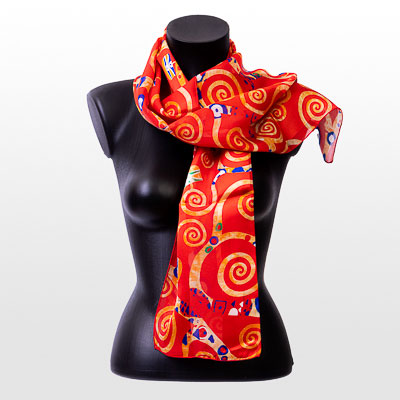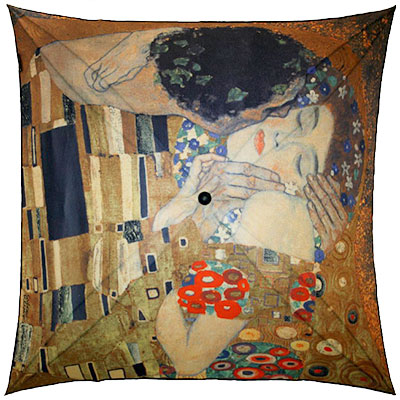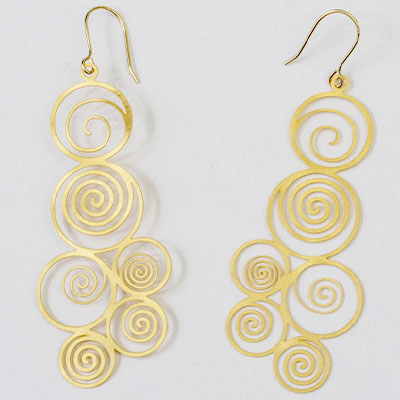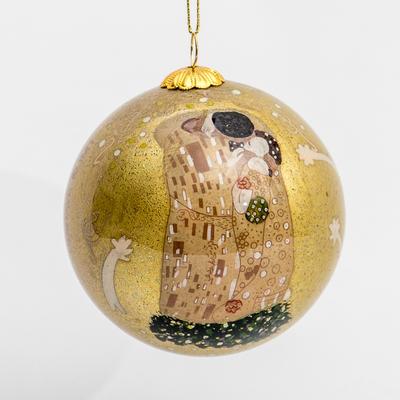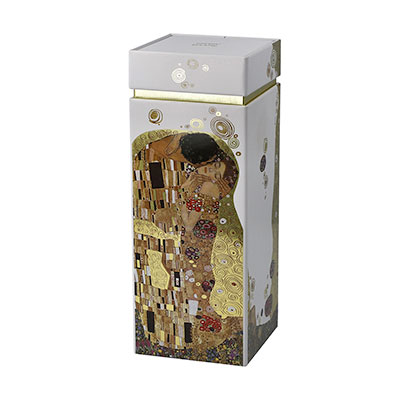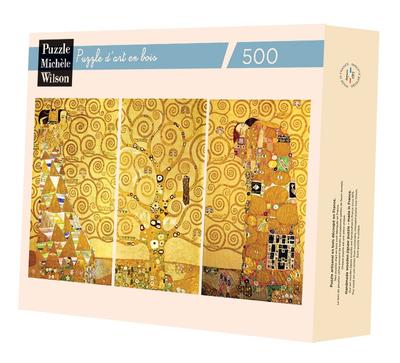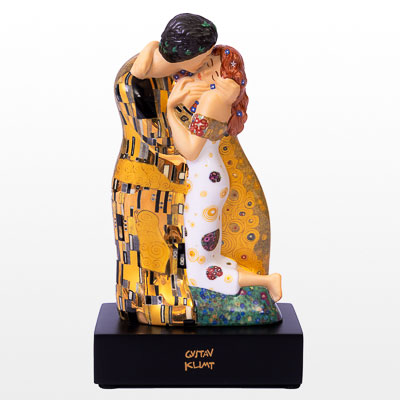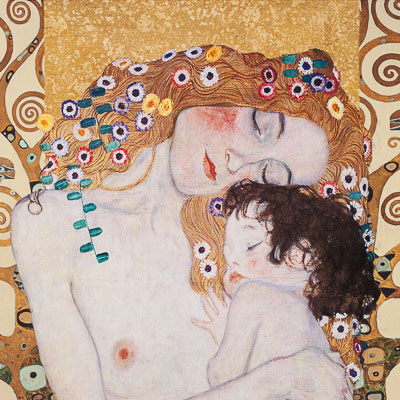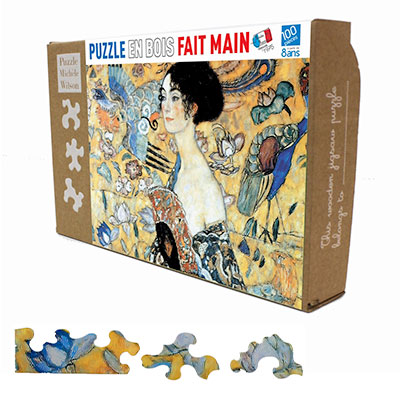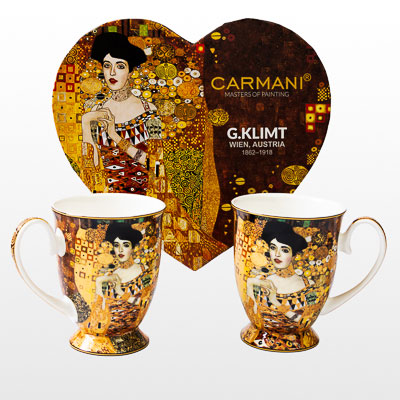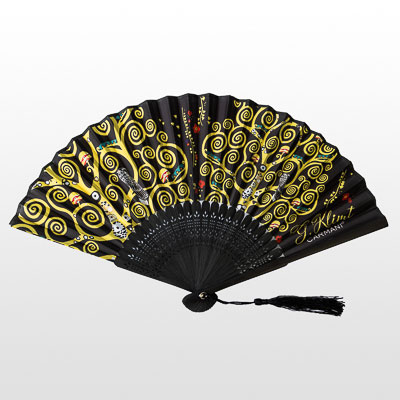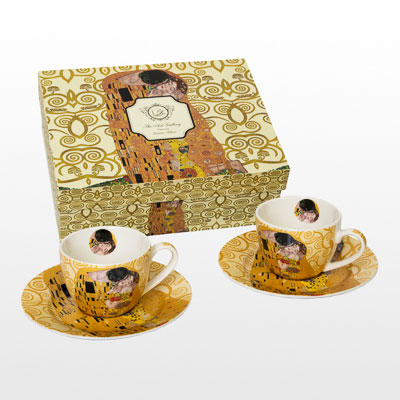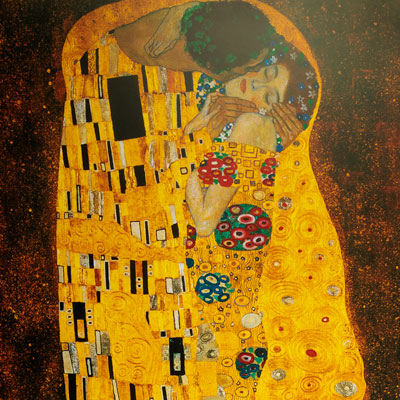Tel : (+33) 4 94 63 18 08
9am - 6pm from Monday to Saturday
* * * * *
Adèle Bloch-Bauer (1903 - 1907)
The painting by Gustav Klimt titled 'Adèle Bloch-Bauer I' (also known as 'The Lady in Gold' or 'The Woman in Gold') was created between 1903 and 1907. Commissioned by Ferdinand Bloch-Bauer, a banker and sugar producer, to portray his wife Adèle Bloch-Bauer, this work is emblematic of Klimt's Golden Phase. Considered one of Klimt's most representative works, this symbolist portrait presents Adèle with sumptuous aesthetics, adorned with floral motifs and decorative elements characteristic of Art Nouveau. The painting reflects the influence of Byzantine art and symbolist motifs, creating an opulent and symbolic atmosphere. The painting's history is marked by tragic events related to World War II. After being stolen by the Nazis in 1941, the painting underwent a long legal battle for its restitution to the Bloch-Bauer family. In 2006, it was sold to Ronald Lauder for $135 million, establishing a price record at the time. Today, it is exhibited at the Neue Galerie in New York, co-founded by Ronald Lauder. The turbulent history of the painting adds a unique dimension to its iconic status in art history.
Art Nouveau
Art Nouveau: An Ornamental Whirlwind that Marked the World of Art
Art Nouveau, this artistic movement that emerged in Europe at the end of the nineteenth century, managed to enchant the senses and revolutionize artistic conception until the first decades of the twentieth century. Its founders, visionary minds like Victor Horta and Hector Guimard, infused a new vitality into creative expression by adopting an extravagant ornamental style, resembling a visual symphony inspired by nature. Between 1895 and 1905, Art Nouveau reached its peak, submerging the artistic and architectural landscape with its flamboyant brilliance. However, its imprint deeply rooted itself in the intricacies of art and architecture, stretching far beyond that prosperous period. The movement drew inspiration from various artistic and cultural currents of the time, such as Japonism and the Arts and Crafts Movement, skillfully merging traditional and modern elements to create a bold aesthetic. Art Nouveau artists left their mark with fluid curved lines and intricate ornamental motifs, blossoming like flourishing petals in their creations. Their passion for nature translated into works brimming with life and energy, capturing the very essence of the natural world in breathtaking beauty. They also explored new artistic paths, pushing boundaries through innovative production techniques, such as blown glass and forged metal. These daring creators found their expressive ground in a multitude of artistic fields, whether in architecture, sculpture, engraving, photography, or furniture design. Names like Victor Horta, Hector Guimard, Gustav Klimt, Antoni Gaudí, Alphonse Mucha, Théophile Alexandre Steinlen, Henri de Toulouse-Lautrec, and Aubrey Beardsley illuminated the artistic scene with their creative genius. Their works, exhibited at international events, spread the fame of Art Nouveau to all corners of the globe. Although Art Nouveau held a prominent place in art history, it did not escape criticism, with some reproaching it for its lack of political and social depth. At the turn of the twentieth century, it eventually gave way to new artistic movements. Nevertheless, its legacy endured, imbuing art and architecture with timeless influence. Even today, it is celebrated and admired for its unparalleled splendor and creativity, an eternal testament to a time when art dared to push the boundaries of imagination.
Discover the artist
Klimt Gustav
Gustav Klimt: Artistic products of the famous Art Nouveau artist . We propose a large choice of articles as umbrellas and silk scarves made in France, art jewelry or artistic puzzles.

